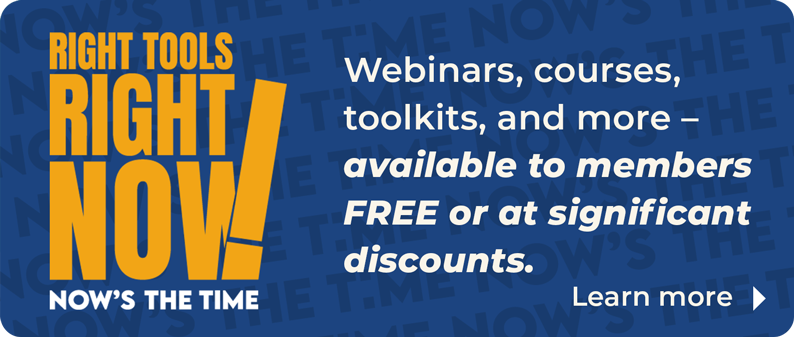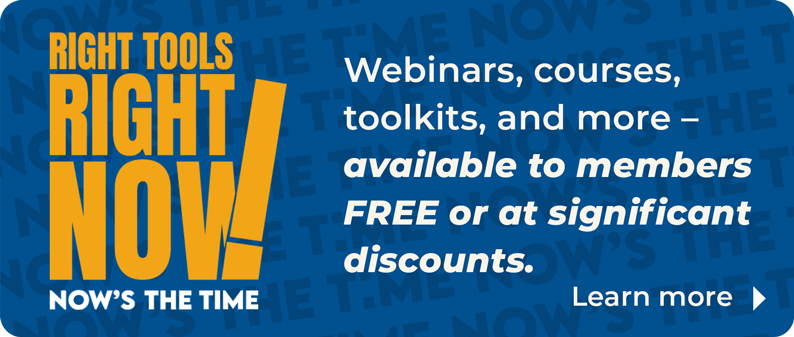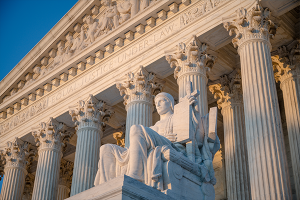IRS Extends Tax Deadlines
The IRS issued guidance to grant deadline relief for both 1031 like-kind exchanges and opportunity zone investments that are already underway. Both of these programs are designed to promote economic growth in communities, and NAR made the case that investors in these programs should not be harmed due to the effects of COVID-19.
1031 Like-kind exchanges. If an investor has taken the first step of a like-kind exchange by selling the old property, and either the 45-day or the 180-day deadline falls between April 1 and July 15, the deadline has been extended to July 15. Opportunity Zones. If an investor who sold a capital asset planned to roll over the gain into an Opportunity Fund and the 180-day deadline to do so falls between April 1 and July 15, 2020, he or she can make the investment as late as July 15.
Also, sole proprietors who pay quarterly estimated taxes now have until July 15 to file their second quarter payment. As a result of an earlier IRS notice, first quarter estimated tax payments had already been extended to July 15. This means that any individual or corporation that has a quarterly estimated tax payment due on or after April 1, 2020, and before July 15, 2020, can wait until July 15 to make that payment, without penalty.
NAR has advocated heavily for these extensions since the outbreak of the COVID-19 pandemic.
CARES Act Business Resources for Commercial Practitioners
Congress passed the Coronavirus Aid, Relief, and Economic Security Act (CARES Act) earlier this year, providing a $2 trillion economic relief package. Below are specific resources beneficial to the commercial real estate industry; or view a comprehensive look at all the provisions in the bill.
Small Business Administration Program (SBA)
The CARES Act included funding for SBA loan programs for impacted industries and businesses including commercial brokerages and property management firms. Many commercial brokerages will qualify for the following programs and practitioners can share with their tenants and clients:
- SBA Economic Injury Disaster Loans: Targeted, low-interest loans of up to $2 million for small businesses and non-profits that have been severely impacted by the Coronavirus (COVID-19). Applicants are immediately eligible for advance funds of up to $10,000 for payroll, rent, utilities and similar payments. In July, the SBA’s funding for EIDL advance grants was depleted, and it stopped accepting new applications. It is still accepting applications for the regular EIDL program however.
- SBA Paycheck Protection Program (PPP): Small businesses that meet current SBA requirements, any business with 500 or fewer employees, sole proprietors, independent contractors, and “gig economy” workers qualify for the 7(a) PPP loans.
The SBA 7(a) Paycheck Protection Program loans (PPP loans) are intended to cover expenses for a business during any 24-week period between February 15, 2020 and December 31, 2020 (borrowers who received loans before June 5 can opt for either an 8- or 24-week period). They can be used for payroll costs, rents, mortgage interest, and utilities.
Businesses can get the lesser of either 2.5x the average monthly payroll expenses they had for the year prior to the loan or $10 million dollars. When calculating payroll expenses, individual employee salaries are capped at $100,000 (prorated per month). Independent contractors must base their loans on their 2019 net earnings, as shown on their 2019 Form 1040 Schedule C, line 31.
NOTE: The PPP application deadline was extended to August 8, 2020; however, Congress did not pass another extension of the program before adjourning for its August in-district session. The EIDL Advance Grant funding was exhausted in July. As of August 31, new applications are not being accepted for either PPP loans or EIDL advance grants, but the EIDL loan program is still open. NAR is strongly advocating extending both programs with more funding in the next COVID-19 relief package Congress passes.
Multifamily
- Fannie Mae and Freddie Mac (the Enterprises) will offer multifamily property owners mortgage forbearance with the condition that they suspend all evictions for renters unable to pay rent due to the impact of coronavirus.
- The CARES Act allows multifamily owners who were current on their mortgage payments as of February 1, 2020, and have federally insured, assisted, or supplemented loans (Fannie Mae, Freddie Mac, FHA or any loans backed or assisted by any branch of the federal government, including LIHTC) can request forbearance for 30 days due to financial hardship, with extensions of up to a total of 90 days. Borrowers receiving the forbearance may not evict or charge late fees to tenants for the duration of the forbearance period.
- The HUD/FHFA moratorium on evictions and foreclosures only affects borrowers with mortgages backed by Fannie Mae, Freddie Mac, FHA, VA and RHS. The HUD notice only applies to FHA single family mortgage borrowers and Home Equity Conversion Mortgage (HECM) borrowers. The moratorium for Enterprise and HUD loans is set for 60 days (through May 16th).
Important Tax Provisions
Qualified Improvement Property Technical Fix: Businesses can now immediately write off costs associated with internal improvements to certain real estate (including restaurants and retail stores), instead of having to depreciate them over the 39-year life of the building. Companies should file for refunds with an amended tax return for 2018.
Business Tax Offsets: Businesses can now carry back net operating losses from 2018, 2019 or 2020 against profitable years, up to five years, and get immediate refunds. The current taxable income limitation is also temporarily removed to allow a net operating loss to fully offset income.
1031 Like-Kind Exchange deadline extension: On April 9, the IRS announced extensions of several tax deadlines, including for 1031s; specifically, if an investor has taken the first step of a like-kind exchange by selling the old property, and either the 45-day or the 180-day deadline falls between April 1 and July 15, the deadline has been extended to July 15.
Download a more comprehensive overview of this information:
As we all adapt to remote work and social distancing, having everything available in one place is crucial to easing that transition. RPR® has committed to addressing a pain point voiced by commercial members and emphasized during these unprecedented times - the ability to see the majority of commercial inventory in one place. Thanks to partnerships with Brevitas and CREXi, as well as agreements with CIEs, CMLSs, MLSs and TotalCommercial.com, REALTORS® can search more than 450,000 listings across the country, which includes non-REALTOR® and REALTOR® represented listings. 55 million off-market properties are also available, so REALTORS® can gather intel and drill down to prospects and investment opportunities in RPR®. For more information, check out the Top 5 RPR Commercial Data Features.
Ready to get started? Login and search for yourself: www.narrpr.com
Interested in quick tips? Watch the “Expert Series” with RPR, Brevitas and CREXi to learn simple ways to support your business during COVID19:
Find out more about the listing platform providers Brevitas and CREXi, and what they offer NAR members.
The coronavirus pandemic continues to impact the real estate industry, from brokerage operations to marketing listings and closing transactions. NAR is providing guidance to some common transactional questions, based on the current directives from the WHO, the CDC and the White House. All members are encouraged to stay informed by regularly visiting the CDC’s website.
In deciding how to address new issues that may come up in their day-to-day business, NAR urges members to find answers that will ensure first-class services to their clients, while also demonstrating care for the health and well-being of clients, agents, and the greater public welfare in reducing the risk of exposure to and spread of COVID-19.
This is general guidance only. Members should consult their brokers, legal counsel, and government-provided public health information.
- What should a landlord or property manager do if someone has tested presumptive positive or positive for COVID-19?
If a tenant, visitor or employee has tested presumptive positive or positive for COVID-19, issue a building alert to other tenants, residents and others who share facilities. Report the matter to the local health agencies and be sure to follow directions regarding cleaning and other appropriate actions. Be careful to neither reveal the identify of the individual nor an affected company because of health privacy and other legal considerations.
- Do special instructions need to be given to building maintenance or house keeping services?
They should be provided training on protocols for wearing protective gear, sanitizing tools and equipment, and proper disposal of gear and materials that may have been exposed to COVID-19.
- Can individuals who enter the building be asked questions related to COVID-19, such as about symptoms, exposure or recent travel?
As long as everyone who enters the building are asked the same questions this should be fine. Some appropriate questions could be:
- How are you feeling today?
- Have you recently been in close contact with someone or attended an event where there has been a confirmed case of COVID-19?
- Have you recently traveled anywhere?
Questionnaire answers only should be used to determine whether additional precautionary measures should be taken or alternative measures should be used. The answers must not be used to deny someone employment or services.
- My building has a common mail room. What should be done about mail and packages?
Consider adopting a protocol where a few appropriately protected people handle and deliver the mail or establish a mail schedule for smaller groups of people to collect their mail. And be sure to increase disinfection efforts in between each group’s time.
- Will parties be excused from performing their services or obligations in the lease due to the COVID-19 pandemic?
Review the lease, specifically you will want to check the Force Majeure, Casualty, and Condemnation/Eminent Domain provisions. Depending on the language, these provisions can give the landlord or tenant certain rights to excuse, suspend or terminate obligations or services.
A force majeure clause generally permits parties to suspend or terminate their obligations due to certain circumstances beyond their reasonable control. In the context of COVID-19, look to see if the force majeure clause enumerates circumstances such as “disease,” “epidemic,” quarantine,” “acts of government,” and “pandemic.” If the force majeure clause includes broad general language such as “any cause whether similar or dissimilar to the foregoing,” it is likely to cover circumstances that are not specifically enumerated in the provision.
A casualty clause usually covers fire, flood, explosions or other similar occurrences that degrade the physical or structural integrity of the building. A tenant might look to this clause on the basis that their ability to operate their business or to use their lease space has been significantly disrupted by the COVID-19 pandemic.
Tenants in buildings and spaces that are directly affected by government closures may view their lease spaces as being taken over by the government. Check to see if the lease addresses condemnation or eminent domain and whether it provides any termination or rent abatement rights.
- Which party’s insurance is triggered by the claims arising from the COVID-19 pandemic?
If the lease contains an insurance requirement, you will want to check whether it states when and how each party’s insurance is triggered. The provision may specify circumstances where only one party’s insurance would apply or where the insurance of both parties apply, or neither policy will apply.
- What should be done if a tenant just decides to stop rent based on a theory from a lease provision or any other reason?
A landlord should have the right to deliver a notice of monetary default, and possibly the right to accelerate all lease payments with possible immediate recourse to guarantors and/or letters of credit. This action will require the tenant to defend its decision. It is important to note that some states have a moratorium on commercial (and residential) eviction proceedings.
- Does rent relief or assistance need to be provided to any tenant who requests it?
A landlord has financial responsibilities so it wants to be sure that any relief or assistance provided is to a tenant who actually needs help and not one who is just trying to exploit the situation. Using a rent assessment application, like the one provided by SterlingCRE Advisors can provide information about the tenant’s situation and help determine what type of relief is needed. A landlord should not feel obligated to provide relief to any tenant who is in default. And tenants should be encouraged to seek assistance from government relief programs and their franchisor, if applicable. If a tenant submits a rent relief request, try to respond as soon as practicable to avoid potential vacancies.
- What relief should be provided to tenants seeking assistance?
With the landscape rapidly changing due to the COVID-19 pandemic, discussions or relief should be limited to 30 to 60 days. This allows the landlord to monitor the situation and to consider any new circumstances. In terms of relief, try offering the tenant rent deferral instead of a rent waiver. Another option could be using the tenant’s security deposit in place of a month’s rent and to have the tenant repay the deposit over time. Be sure to check with the lender and attorney before offering any relief to confirm that it is permissible.
- How should I keep track of rent relief and assistance that is provided to tenants?
Be sure to keep documentation of all rent relief, adjustments and other types of assistance provided to tenants. Also, be sure to have the tenants agree to a confidentiality clause.
- We are in the middle of negotiating a new lease, is there anything different we should do considering the COVID-19 pandemic?
Parties negotiating leases or new contracts should pay close attention to the force majeure clause and consider including “disease outbreak,” “epidemic,” “quarantine,” “acts of government,” “pandemic,” and others of the like as force majeure events.
On the flip-side, if the parties want to carve out an exception about the effects of the COVID-19 pandemic, then specific language stating such should be incorporated.
- Any recommended practice for resolving disputes?
With everything that is happening due to the pandemic, parties should assess appropriate actions with the knowledge that there is sure to be delays and lag time in seeking any legal recourse to resolve disputes. The federal and state government have been announcing plans or intentions of providing emergency monies to assist businesses survive through this pandemic. Therefore, parties working together to find solutions together to keep leases and relationships intact may be the best practice!
ALWAYS COMPLY WITH LOCAL AND STATE GOVERNMENT ORDERS REGARDING CORONAVIRUS-RELATED RESTRICTIONS.
CCIM
CCIM has curated a valuable resource and guidance page, including information on government resources and legislative initiatives that will benefit commercial practitioners. It also features a podcast from CCIM Institute Chief Economist K.C. Conway discussing the pandemic, how CRE practitioners can weather the storm, and how to future-proof new investments.
CCIM COVID-19 Resources and Guidance
The following CCIM courses will be offered at no cost until this crisis has passed:
Calculating Value for Investment and Rental Properties
Developing Your Commercial Real Estate Business
Leasing Commercial Real Estate
The Role of Demographics and Market Data
IREM
IREM’s comprehensive COVID-19 landing page offers several resources and tools for property managers, including:
- Comprehensive Pandemic Guides in English and Chinese which offer guidance on everything from creating and implementing a pandemic plan to IT and security and legal considerations.
- Access to On-Demand Accelerators, which are micro-learning courses (45-60 minutes each), which are being offered at no charge for two weeks on a rolling basis. Check the schedule for the current and upcoming offerings.
- “From the Front Lines” short segments (5-15 minutes, delivered podcast style) on the impacts of COVID-19 on the commercial real estate management industry. New segments are posted each Tuesday and Thursday.
The Counselors of Real Estate
Giving back is a core value of The Counselors of Real Estate. Counselors are sharing expertise and personal stories from their markets to assist colleagues and advise property owners, users, investors, and municipalities during the COVID-19 pandemic. Resources such as the Disaster Response Discussion Board on the CRE Member Forum and the Request for CRE Expertise email initiative are available exclusively to Counselors. The thought-leadership journal, Real Estate Issues, the CRE Disaster Response resource page, and the Find A CRE search tool are available to all REALTORS®.
CONNECT. COLLABORATE. ASK. SHARE. Join your CRE Colleagues on the new CRE Disaster Response Discussion Board.















